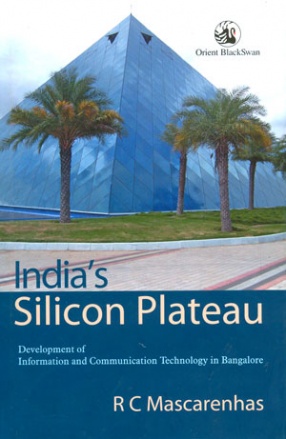India's Silicon Plateau is a study of the development in India of information and communication technology (ICT). The author has emphasised the political, historical and institutional factors, acknowledging the role of the central and state governments. India's policy of import substitution and its science and technology infrastructure, bringing together universities, industry and government provided a solid foundation for growth.
The author believes that India's ICT revolution predates the 1991 economic liberalisation, resulting from the high quality of human resources that was a product of institutions established earlier. He has outlined the catalytic roles played by the Electronics Commission, the Department of Electronics, the Computer Maintenance Corporation, the Centre for the Development of Telematics, the Centre for Development of Advanced Computers, and the Science and Technology Parks of India. The spotlight is turned on Bangalore, in the Deccan Plateau, resembling USA's Silicon Valley as a pioneering hub for the ICT industry, which has earned it the sobriquet of India's Silicon Plateau. With its equable climate and cosmopolitan openness, Bangalore was seen as an ideal location for the establishment of public sector industries like Bharat Electronics. In the mid-1980s, the favourable environment created by the Karnataka government attracted several multinationals into Bangalore. In a reversal of the brain drain, Indian technologists based abroad are returning to the congenial Karnataka capital.
While showing the contours of the progress in the ICT industry, the book dwells in particular on the flowering of Bangalore as India's premier city for the computer age.





There are no reviews yet.